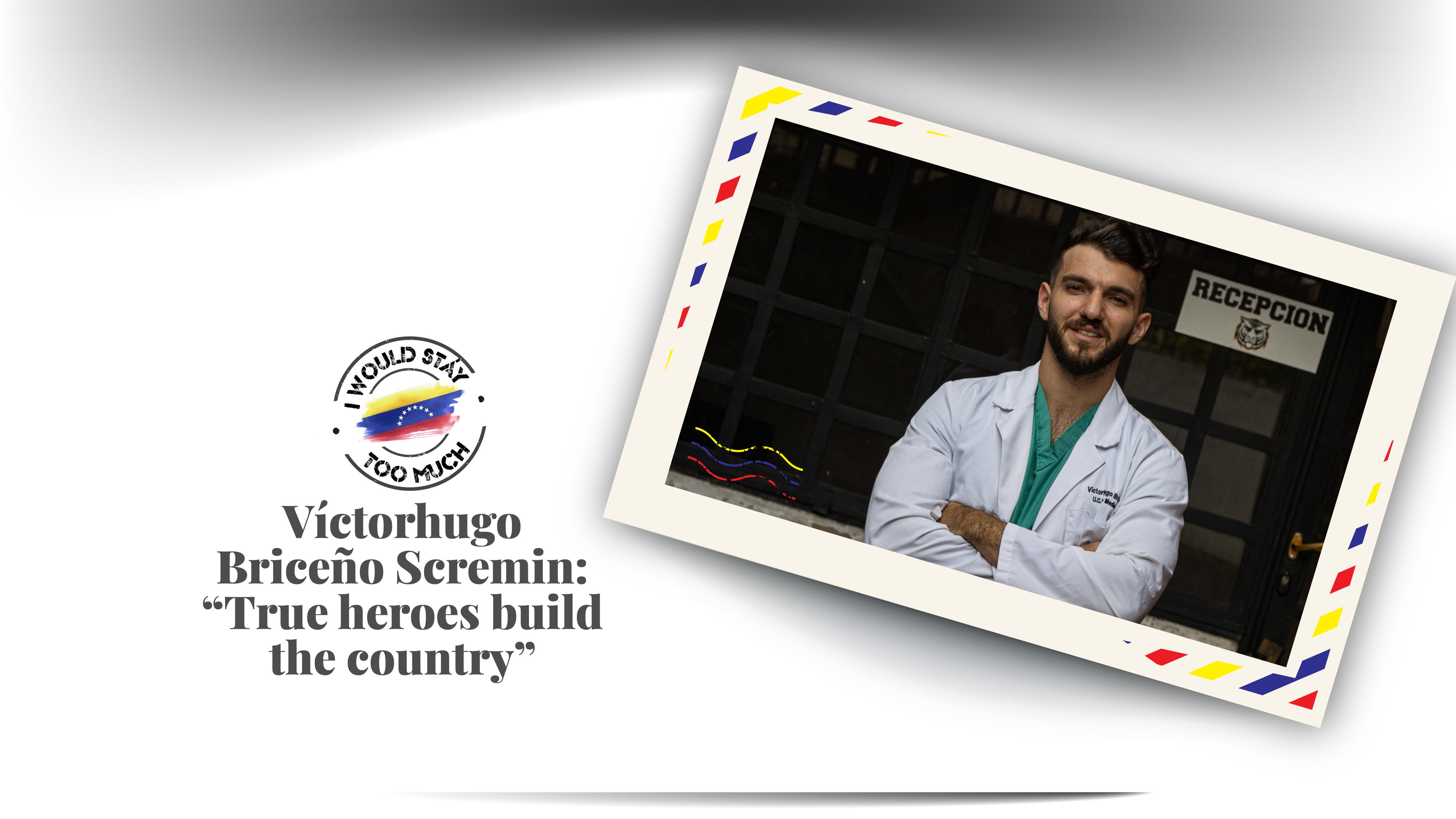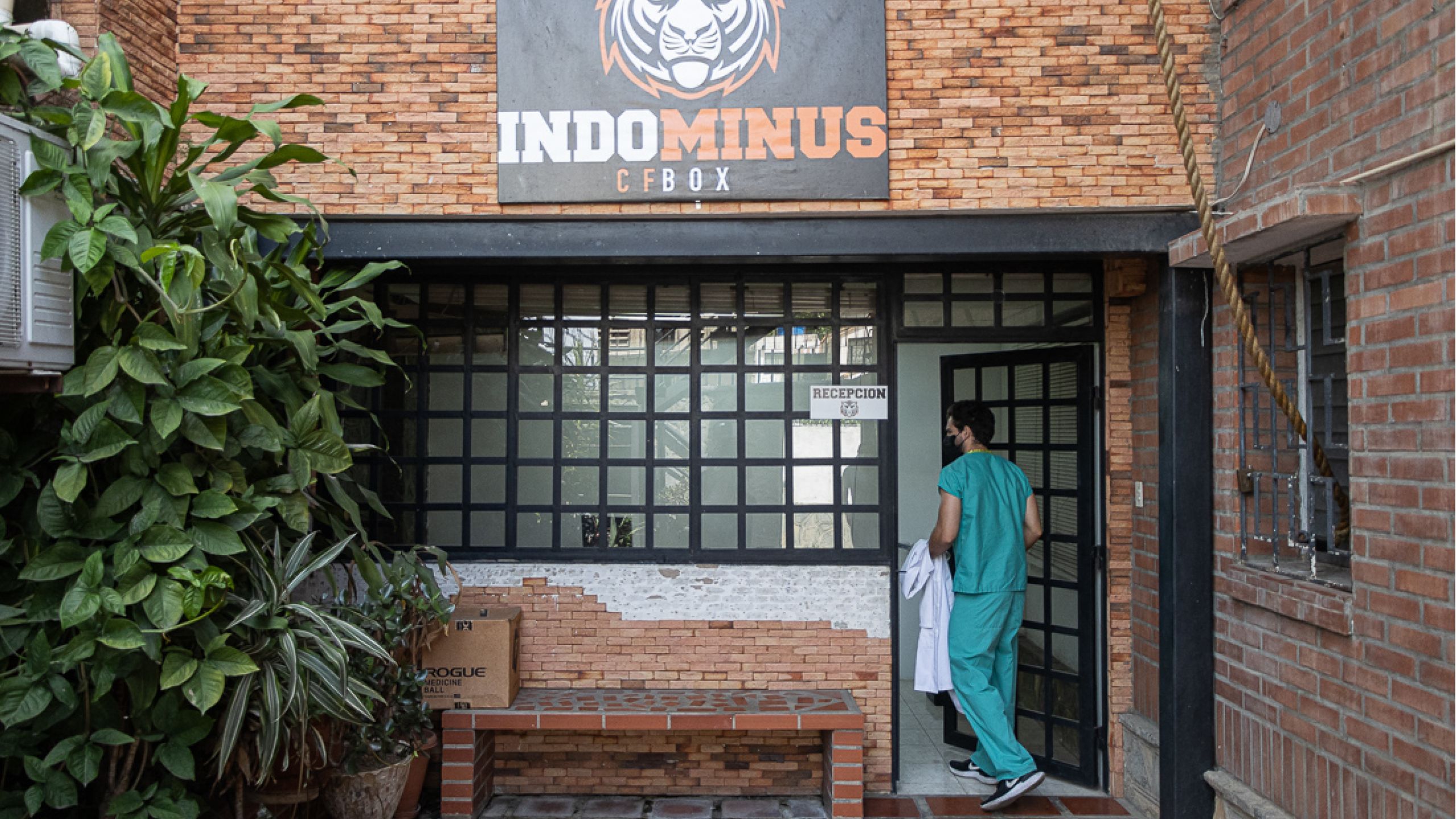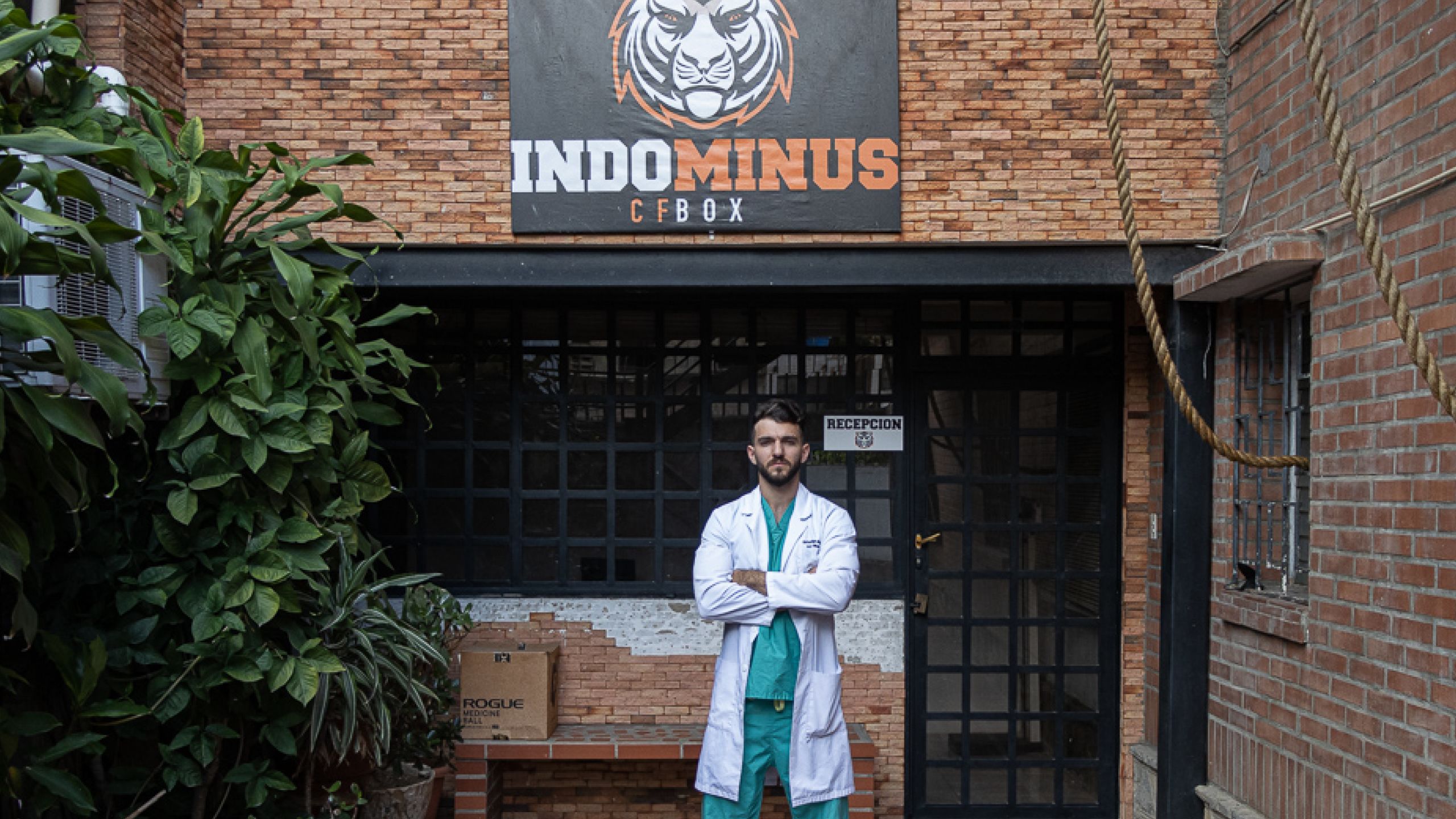
The 27-years-old Venezuelan doctor –who also has Italian nationality– feels Venezuela needs young citizens to recovery. He planned to go to Germany for a postgrad, but the COVID-19 pandemic changed everything. Nowadays, he is developing his project about preventive health. In Venezuela, he says he has fulfilled his dreams and is a country worth keep working in.
By Armando Altuve

Victorhugo Briceño Scremin preserves in his memory the image of Venezuela that his parents, especially his grandfather, painted: a land with opportunities to grow up. The current economic, political, and social crisis has parted the country from the vision of development and progress. But Victorhugo, a 27-years-old Venezuelan doctor, believes that a dreaming country is still possible, even amid the rubbles.
Therefore, unlike other young professionals of his generation, he does not visualize a future abroad, not even when he has an Italian passport, a heritage from his grandparents.
He is aware of the opportunities to grow up in other countries thanks to his European nationality. But Victorhugo believes Venezuela needs young people to get it afloat. In 2020, he contemplated to moved to Germany to get a postgrad, and he even started classes to improve the language. But his goal was never to live there. "I planned to go there, learn everything and come back to Venezuela to bring all the knowledge to the country, just like Francisco de Miranda –a local patriot hero– did."
What ties the young man to the country is the possibility of keep training as a doctor and helping people. He comments that Med-Schools in Venezuela are among the best because, since the first years, students have had dealings with patients and acquire clinical experience, attributes valued in other countries.
Victorhugo assures that it is very profitable to get medical studies in Venezuela, unlike other countries where the challenges are bigger because of the high costs and the demand of other Venezuelan doctors abroad looking for better salaries and work conditions.

According to the Venezuelan Medical Federation, at least 30,000 doctors have left the country, among them friends and colleagues of Victor Hugo. There are many challenges of being a migrant, like language barriers, professional competition, and the clashes of cultures and customs.
Victorhugo says he has had the chance to visit other countries and has known xenophobia and the intricate path of adapting to another nation.
In Italy, he only has family ties, but never plans to live there. His mother even urged him to pursue his professional career as a doctor in Venezuela. "Italy is beautiful, but there I would only do tourism, I would not live or study. There they treat me like one of them because I am from an Italian family. My relatives from Italy and I don't see each other much, but they always say they love me."
He notes that he feels as optimistic and resilient as the compatriots he has met. Those two characteristics identify him with his people. For that reason, he confesses that he cannot imagine living in another country.
"From Venezuelans, I love that we always look for shining even if the Sun gets blocked. That, even when we receive a NO, we keep looking for a yes to prove that everything is possible. Because of the political moment, our generation gets used to listening 'no, you can't,' but we see people who step forward. The crisis is an opportunity to grow."
An idealist patriot
Victor Hugo defines himself as an idealist but, above all, a patriot. Those feelings took strength during his college years, and he decided to protest on the streets to ask for a political change, apart from the last two decades of the Chavista model. In those demonstrations of 2014 and 2017, Victorhugo understood the importance to fight for the country that his descendants knew. Like thousands of Venezuelans, he anchored himself to the path of hope that opposition leaders had carved out.
While studied the human body, Victorhugo got involved in some activities of the student movement, where he could understand even more the political process that Venezuela is going through and how, in his opinion, it negatively affected young people, including himself. Thanks to his parents, an engineer, and a lawyer, he had everything he needed to achieve his medical degree.
However, having the possibility to study without so many setbacks did not make him ignore the reality of his colleagues who did not have that same privilege. He understood, for example, how difficult it was for a person to study a career in medicine and work at the same time, earning a salary that did not even allow him to cover basic expenses. "I knew of students from other cities that had no money to rent a room to live in Caracas and study."
Through the years, Victorhugo also faced the health-system crisis and the severe consequence for the patients. At that moment, the precariousness of the health centers discouraged him to the point that he wanted to leave the country, but he kept the hopes in the air of a political change that float at the beginning of 2017. When that hope vanished, he visualized his next days in Europe.

But the expansion of COVID-19 paralyzed those plans. The time of isolation led him to train as a professional coach at Opex Fitness, an American institution with experts in physical training and nutrition consultancies to improve health. And after that, he started a project focused on preventive health that he called VH.
Currently, Victorhugo dedicates his permanence in Venezuela to what he does and loves best: generate well-being for the population. So, he decided to be part of those "anonymous heroes," as he calls them, who sweep the patio of his house, collect waste and make a better country, paraphrasing Mother Teresa of Calcutta. "The true heroes build the country," he emphasizes.
The doctor reflects that his roots with the country do not imply that he stops recognizing the crisis or criticizes what is wrong and work to improve it.
Victorhugo feels that Venezuela needs to be working with faith and strength. It hurts him that the country that was the destination of thousands of migrants –among them, some 30,800 Italians, according to the National Institute of Statistics (2011)– is today a place where people survive.
Still, he considers this land his home. "It is the country where I made my dream of being a doctor come true, and I am developing my life project, showing that it is possible to do it despite the obstacles. We stay in Venezuela because we feel that we can do something to lift the country."
